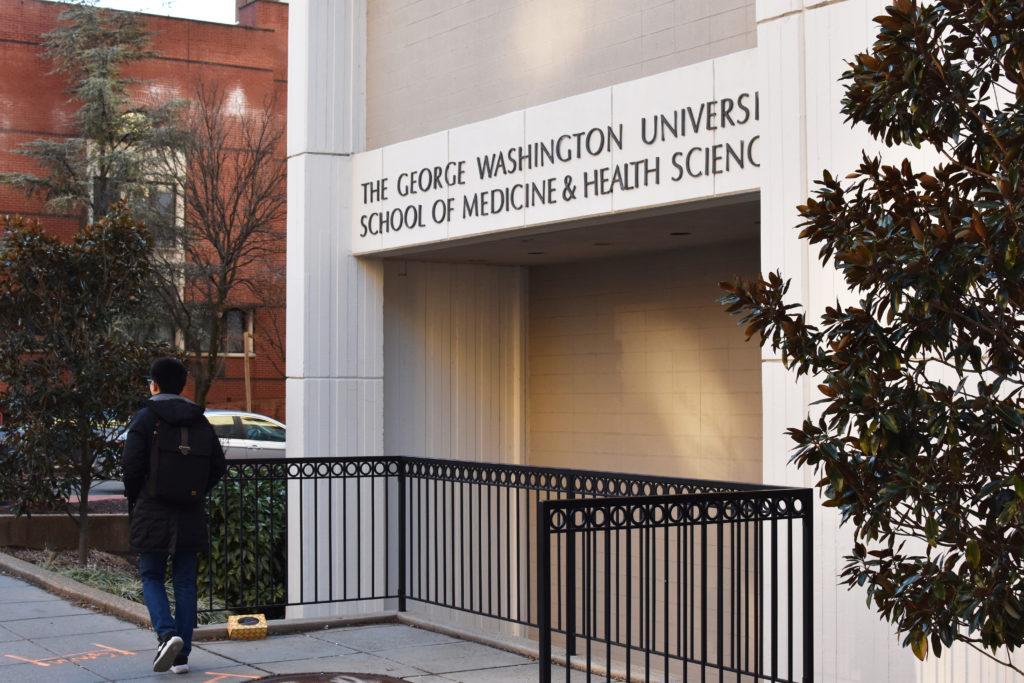An incoming professor of medicine will establish a center focusing on culinary medicine when he joins the School of Medicine and Health Sciences in early 2020, according to a medical school release last week.
Timothy Harlan, a chef and a professor of medicine, previously served as the executive director of a culinary medicine center at Tulane University and will launch a similar center at GW in January. Harlan said he wants to educate health care providers about how they can work with patients to eat healthy food by offering courses that focus on nutrition and health.
“Food-related chronic conditions are the leading causes of disease and disability for patients, families and communities,” Harlan said in an email.
Culinary medicine is an evidence-based field that examines how diet and nutrition affect human health, according to a 2016 study from the Journal of Population Health Management.
Harlan said the new center will demonstrate how health care providers can encourage patients to adopt healthier dietary habits to treat and prevent the onset of disease.
Poor nutrition is a leading cause of diseases like Type 2 diabetes, heart disease and stroke, according to the Centers for Disease Control website.
He said the center will offer continuing medical education courses – extra medical education that doctors receive after beginning their careers – to health care providers focusing on nutrition and health.
“The center will focus on teaching health providers and students how to partner with patients to prevent and manage diseases using food,” he said.
He said researchers in the center will primarily concentrate their research on the benefits of culinary medical treatments to attain better health.
“Culinary medicine is an emerging field, so any research coming from the center will serve as important foundational work for further research,” he said.
Culinary medicine experts said the center will increase health care professionals’ awareness of the connection between diet and health and encourage medical professionals to conduct more research in culinary medicine fields.
William Chey, a professor of gastroenterology and internal medicine at the University of Michigan, said culinary medicine uses “food as medicine,” advising patients about how adjusting dietary habits can prevent disease. He said diet and lifestyle should be weighed equally with medication to ensure physicians address the root cause of diet-related diseases.
“It’s sort of a real world conduit to thinking about the best strategies to help your patients to utilize diet nutrition in their everyday lives to help with their health,” Chey said.
Kristen Wiens, a professor of behavioral health and nutrition at the University of Delaware, said patients often turn to unhealthy eating when they work under tight schedules, cannot afford healthy groceries or don’t know how to cook. Physicians trained in culinary medicine can give “realistic” and achievable recommendations to their patients on how to maintain a healthy diet, she said.
“What we’re really missing is that kind of tools in the toolbox or skillset that really gives people confidence to prepare meals at home, which we know are going to be healthier,” Wiens said.
Robert Karch, an associate professor of pediatrics at the University of Central Florida, said medical students typically are not educated in culinary medicine or nutrition during medical school because physicians have traditionally relied on medicine instead of healthier life choices that prevent disease.
“We see tremendous power in the triad of physician, chef and dietician, and that’s unique,” Karch said. “That triad is incredibly powerful to promote health and prevent disease.”
Michelle Hauser, a clinical associate professor at Stanford University, said increased research on culinary medicine treatments provides patients with a wider range of health care options to choose from.
“Being able to address dietary and other lifestyle behaviors in the context of creating treatment or wellness plans with patients not only provides better, evidence-based care that adds years to life and life to years, but also gives patients back some control over their health, which is empowering,” Hauser said.





